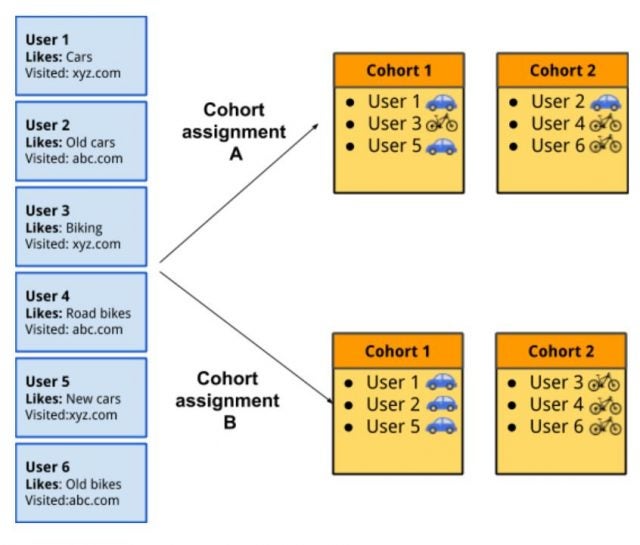Google has announced that it is continuing its fight against third party cookies, which are used to trace users and gain information about them as they browse between websites.
The move, which comes soon after a similar position from Apple, should make user data more secure, and improve customer confidence that their privacy isn’t for sale at every turn.
In the absence of third party cookies, Google is testing new ways to allow advertizers to smartly identify potential consumers.
Google’s Plan to Get Rid of Third Party Cookies
The announcement on Google’s blog this week by David Temkin, Director of Product Management, isn’t too shocking. After all, Google had already made its plans known last year. Although, at that time, the actual replacement for them was still being decided.
Removing third party cookies, which are used to trace user activity, frequently for advertizing purposes, is desirable from a privacy perspective. They can hold a lot of information about you, and removing them helps users feel more secure when online (that is, depending on what they’re replaced with).
Google isn’t the first to wage war on cookies. A big feature of Apple’s iOS14 and MacOS 11 was more stringent privacy settings that actively blocked ‘cross-site trackers’, as well as alerting users as to what information site and apps were requesting from them (with the ability to deny them on a case by case basis).
The actual impact of these changes on big businesses that rely on them are still to be felt. But already, some companies, such as Facebook, have publicly stated that they will have an effect.
“We’re going to have to be providing a prompt asking people for permission to use third-party data to deliver personalized ads, we do expect there to be high opt out rates related to that, and that’s factored into our outlook.” – Facebook CFO David Wehner
Erosion of Trust Means Time’s Up for Third Party Cookies
Cookies have been around for as long as most internet users can remember – they’re as ancient as the tired old jokes about consuming them are. Not all cookies are third party – plenty are used by the site you’re visiting for essential things like keeping you logged in, keeping your basket updated, or simply understanding which parts of a site get the most visitors.
However, there’s no doubt that cookies have played a pivotal role in the way we are tracked across the internet, the way companies can market to us, and the way our data is retained.
There’s a reason that cookies have gone unchallenged for so long, and that’s that they are, effectively, tiny dossiers of every consumer out there, telling companies all about our likes and interests, so they can target us with their latest products. Google made around $40 billion in ad revenue last year, so why does it want to ditch them?
The answer, according to Tempkin, is an “erosion of trust”. Essentially, the average internet user has become a lot more savvy, and sees through what third party cookies are doing, and the information they are harvesting.
“If digital advertizing doesn’t evolve to address the growing concerns people have about their privacy and how their personal identity is being used, we risk the future of the free and open web”. – David Tempkin, Director of Product Management
The alternative to cookies, at least according to Google, is privacy preserving APIs. These can gather as much useable information for advertizers, but without compromising individual user privacy. They essentially gather people into groups (or as Google has dubbed them, cohorts) based on their interests.
In this way, cohorts, rather than individuals, are targeted for advertizing.

The Industry’s Move to Protect Your Privacy
The announcement from Google comes hot on the heels of similar moves from Apple, as well as Mozilla, whose Firefox browser has been blocking third party cookies since 2019.
Cynics might see the move as less one of altruism, and more protecting their own interests. It’s the wolf from the story of the three little pigs, offering to build the houses himself, but with his own materials.
After all, the tech industry has been dragged into the spotlight numerous times over the years for somewhat lax practices in its thirst to gain our data.
Facebook’s Cambridge Analytica scandal, virtual assistants snooping on you, data harvesting malicious apps, using facial recognition with consent (Facebook again)…the list is endless. With user data the 21st century’s gold rush, tech companies will try every avenue to squeeze more of it out of us than ever.
However, it seems that as consumers get smarter, and recognise the worth of their data as well as the risks in having it exposed, companies are reacting with moves to protect them. Whether or not this would have happened naturally without the erosion of trust, as Google calls it, remains to be seen.
According to Google’s blog post, 81% of people state that the potential risks they face due to data collection outweigh the benefits.
It seems that tech companies are moving towards treating their cash cows a little more kindly, as we’re seeing with the recent moves from Google and Apple.
Don’t get too complacent, however – these companies are still collecting data from you. It’s just that now they’re much more likely to ask first, and go to some lengths to anonymise it.
Thinking about your privacy? See our guide to the Most Secure VPNs for 2021




